What is it about mushroom hunting that captures the interest of so many people? Is it the thrill of a hidden treasure in the wilderness, a love for nature, or perhaps the culinary potential of freshly picked fungi? Let’s embark on this journey together and uncover the reasons why mushroom hunting has become a beloved pastime for so many.
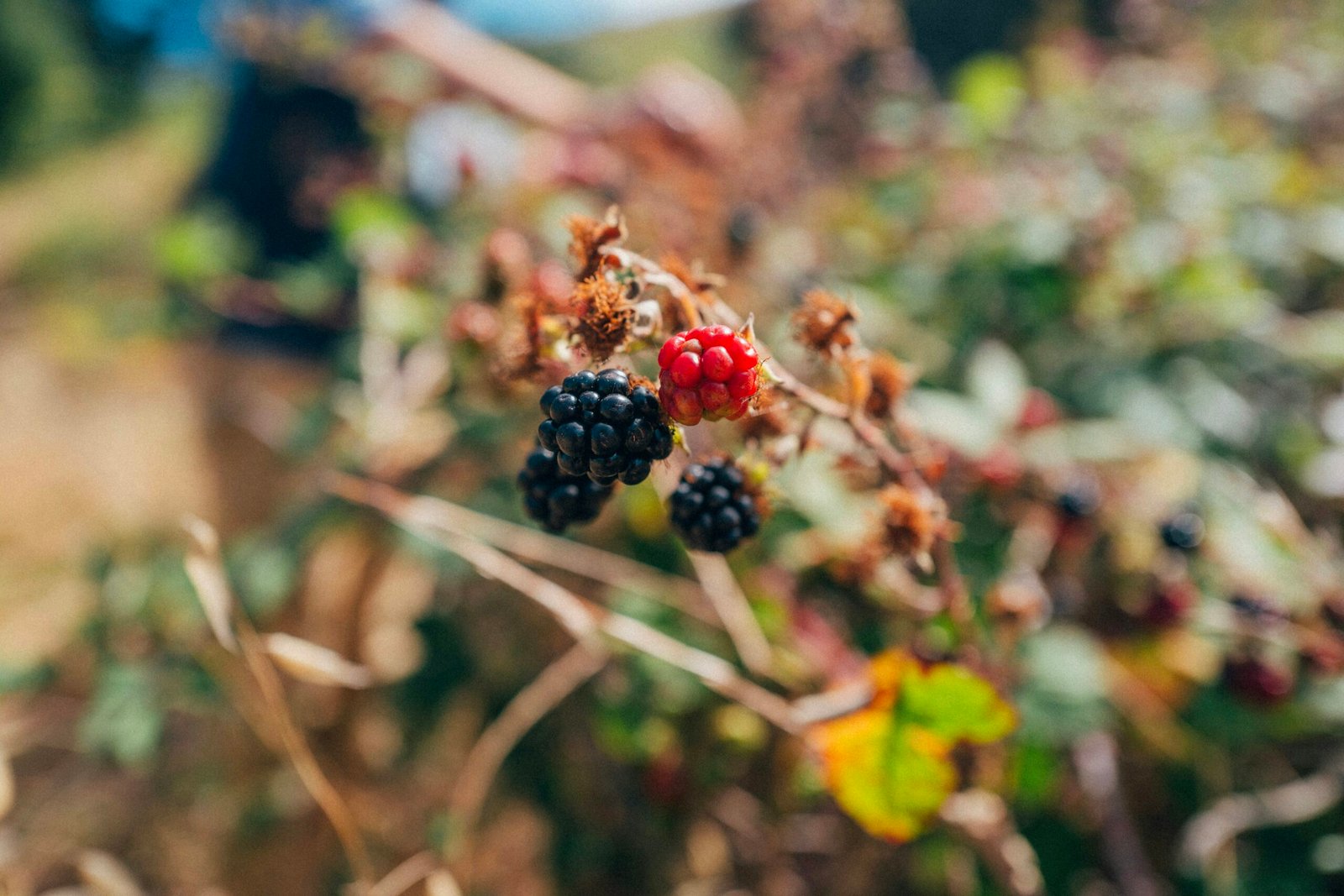
Connection with Nature
Reconnecting with the Outdoors
In our increasingly digital lives, spending time in nature can be a remedy for the constant barrage of screens and notifications. Mushroom hunting offers an excellent opportunity to reconnect with the outdoors. You can immerse yourself in the forest’s tranquility, savor the fresh air, and revel in the beauty of natural landscapes.
Understanding Your Surroundings
When you go mushroom hunting, you become more attuned to the subtle details of your environment. You learn to distinguish between various trees, plants, and other fungal species. This deepens your appreciation for the ecosystem and its intricate web of interdependencies.
The Thrill of the Hunt
Treasure Hunting Aspect
Every mushroom hunting trip is like a treasure hunt. The excitement of discovering a prized mushroom in the woods can be immensely gratifying. Whether it’s a rare species or a simply beautiful specimen, finding mushrooms fuels the spirit of adventure.
Overcoming Challenges
Mushroom hunting isn’t just about finding fungi; it’s about overcoming the challenges posed by nature. Learning to identify edible versus toxic mushrooms, navigating difficult terrains, and developing a keen eye for hidden treasures can be both mentally and physically stimulating.
Culinary Delights
Fresh and Nutritious
One of the primary motivations for mushroom hunting is the promise of fresh, nutritious ingredients for your meals. Wild mushrooms can offer flavors and textures that are unparalleled by their store-bought counterparts. This freshness can elevate your cooking, making your dishes stand out.
Exploring New Flavors
Each mushroom species has its own unique flavor profile and culinary applications. By hunting for mushrooms, you get the opportunity to explore these flavors in their freshest form. From hearty chanterelles to delicate morels, the variety of mushrooms you can find is astounding.
Educational Value
Learning Botany and Mycology
Mushroom hunting can be an educational endeavor as well. You’ll delve into the fields of botany and mycology, learning about different plant species and their relationships within the ecosystem. This educational aspect can be particularly appealing if you possess a curiosity for science and the natural world.
Conservation Awareness
By understanding the mushrooms and their environments, you become more aware of conservation issues. Responsible mushroom hunters learn to harvest sustainably, ensuring that their activities do not disturb the ecosystem but rather contribute to its well-being.
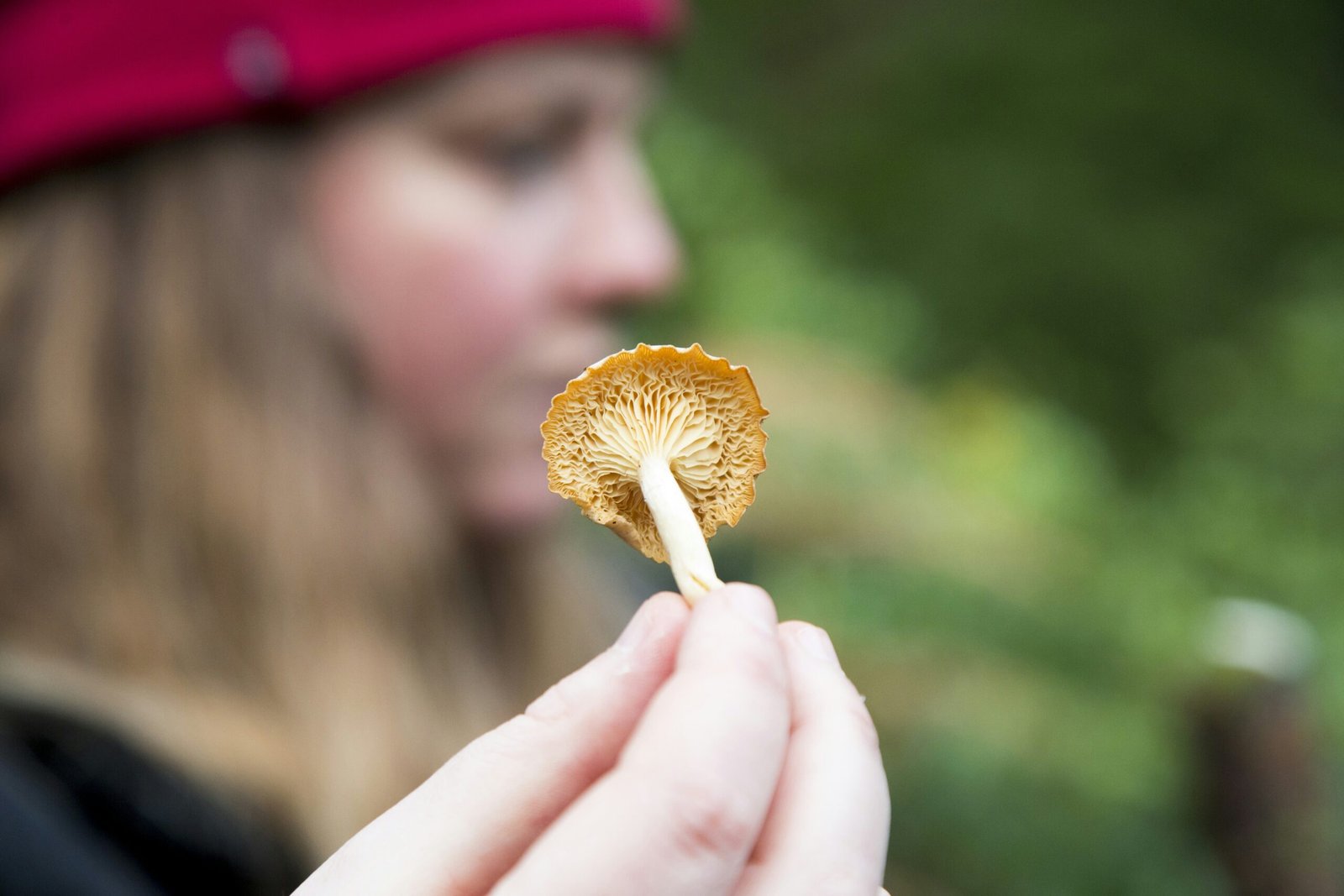
Social Aspects
Community Engagement
Mushroom hunting can be a social activity. Many enthusiasts join local mycological societies or online communities where they share their finds, exchange tips, and plan group outings. These engagements foster a sense of belonging and camaraderie among fellow hunters.
Family Bonding
Going on mushroom hunts can be a fantastic family activity. It offers an opportunity for family members to bond over a shared interest while teaching children valuable lessons about nature and responsible foraging.
Health Benefits
Physical Exercise
Hiking through forests, bending down to inspect the ground, and sometimes climbing over obstacles, mushroom hunting provides a full-body workout. It enhances your stamina and builds strength while allowing you to enjoy the great outdoors.
Mental Well-being
Being in nature has well-documented mental health benefits. The act of mushroom hunting can be meditative, reducing stress and providing a sense of purpose and accomplishment. The focus required in identifying mushrooms also promotes mindfulness, which can lead to improved mental clarity and relaxation.
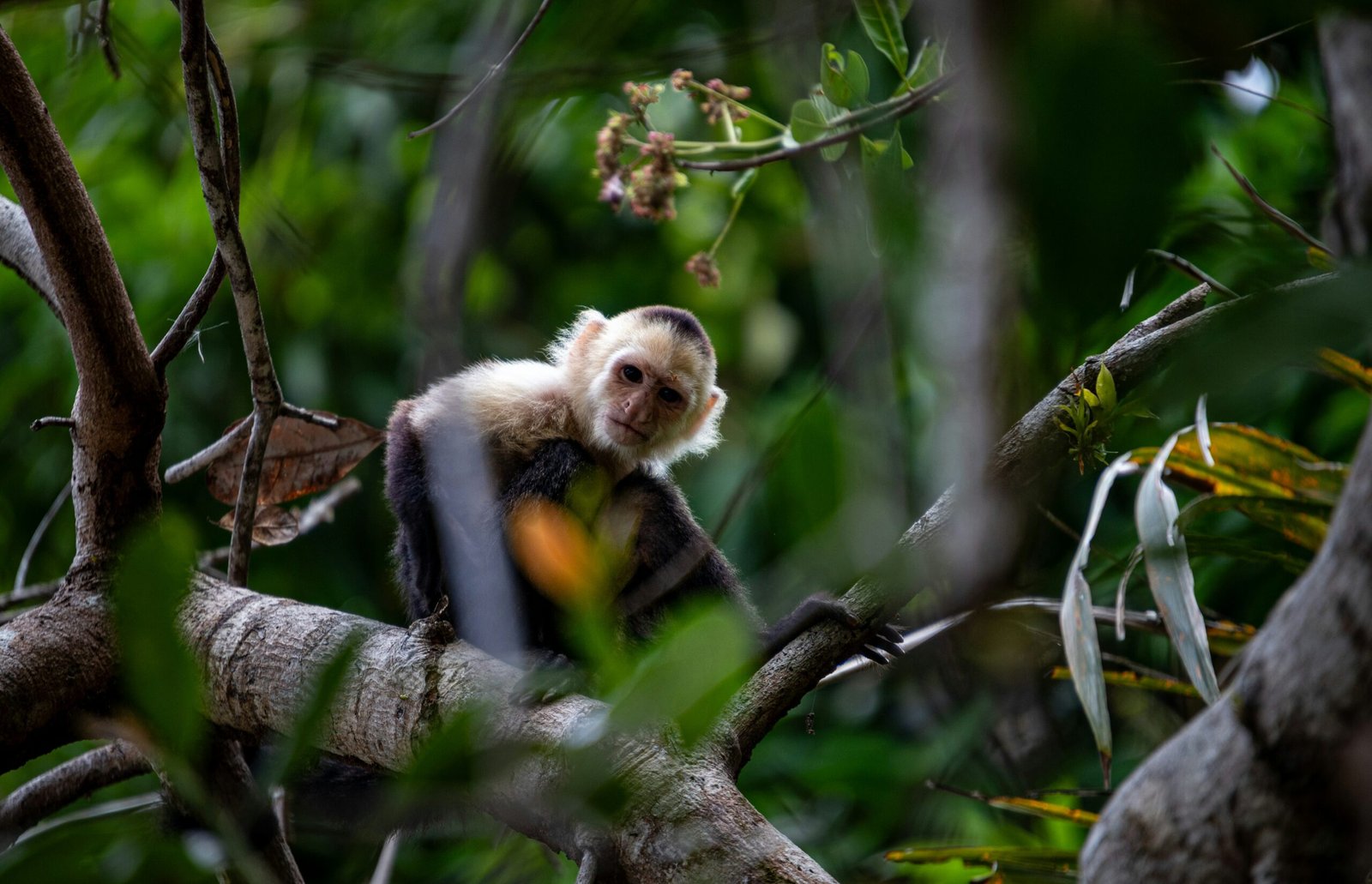
Safety Considerations
Knowledge is Power
Safety is paramount when mushroom hunting. Educating yourself about which mushrooms are edible and which are not is crucial. Misidentification can lead to severe illness or even death. Many seasoned hunters recommend starting with guided tours or foraging classes to ensure you are well-informed.
Equip Yourself Properly
Proper clothing and tools are also essential. Waterproof boots, gloves, and a mushroom knife can make your hunting more comfortable and efficient. Don’t forget to use a handbook or a reliable app to cross-reference any mushrooms you find.
Economic Benefits
Cost Savings
Mushroom hunting can be economically beneficial. Wild mushrooms are often quite expensive in stores, but hunting them yourself can save you money while providing fresher ingredients.
Potential Income Source
For some, mushroom hunting can even become a source of supplementary income. Certain mushrooms, like truffles or morels, are highly sought after and can command high prices in specialty markets. However, this requires expert knowledge and a deep understanding of local regulations.
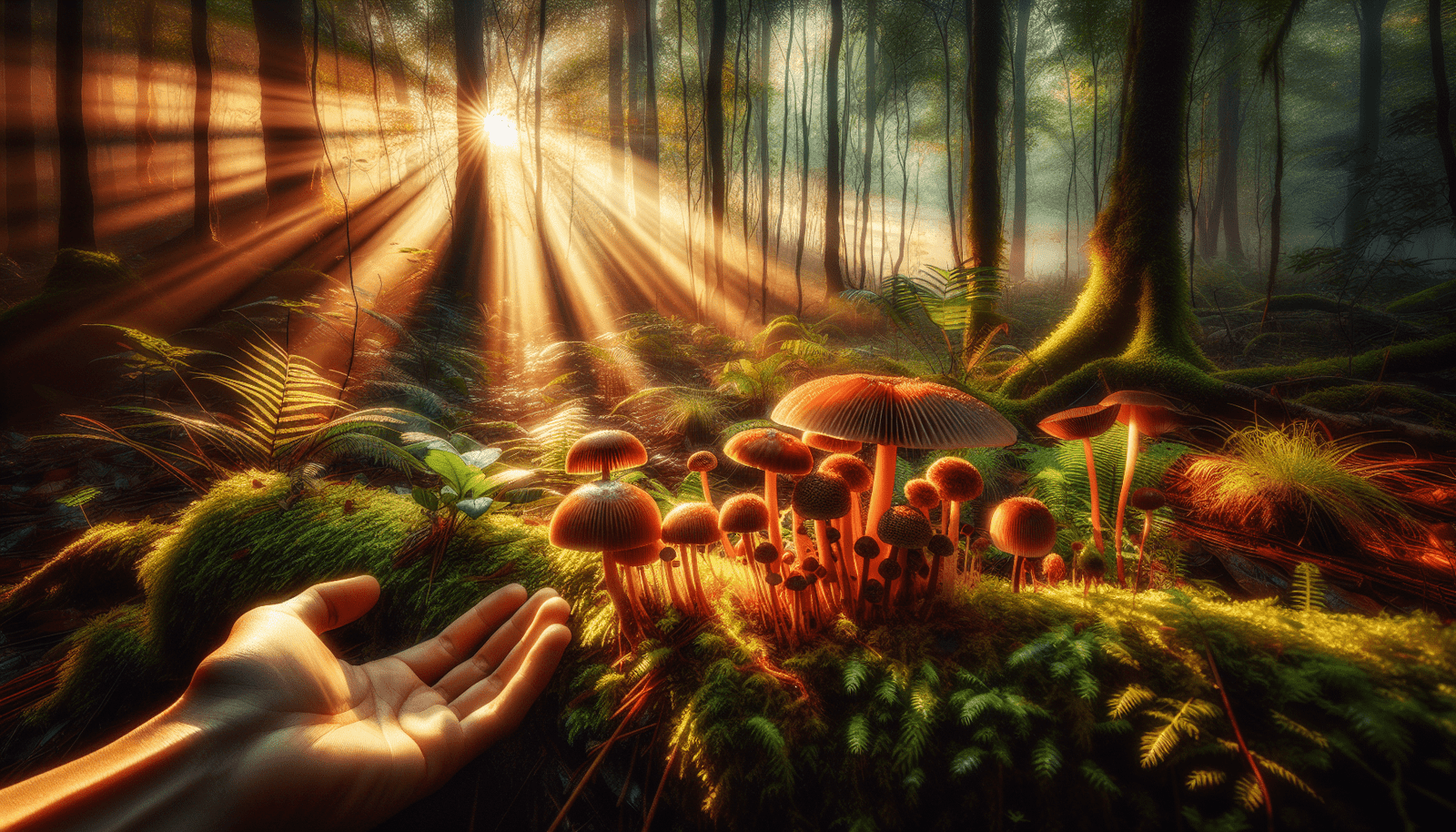
Ecological Impact
Sustainable Practices
Responsible mushroom hunting can have a positive ecological impact. Sustainable harvesting methods ensure that you contribute to the forest’s health rather than depleting its resources. This includes practices like cutting mushrooms rather than pulling them, leaving some behind to spore, and not disturbing the root systems.
Preserving Biodiversity
Awareness and education about various mushroom species can promote biodiversity. By understanding the critical role fungi play in ecosystems, you contribute to broader conservation efforts. Educated hunters become stewards of the land, ensuring that these ecosystems remain vibrant and biologically diverse for future generations.
Psychological Fulfillment
Sense of Achievement
The sense of achievement that comes with successful mushroom hunting cannot be understated. Finding a rare or particularly desired species can give you a thrilling sense of accomplishment. This achievement, coupled with the knowledge that you’ve done so sustainably and ethically, can be deeply fulfilling.
Lifelong Learning
Mushroom hunting is a hobby that offers lifelong learning opportunities. As you continue to hunt, you’ll encounter new species, learn more about their habitats, and refine your techniques. This continuous learning keeps the hobby ever-engaging and fresh.
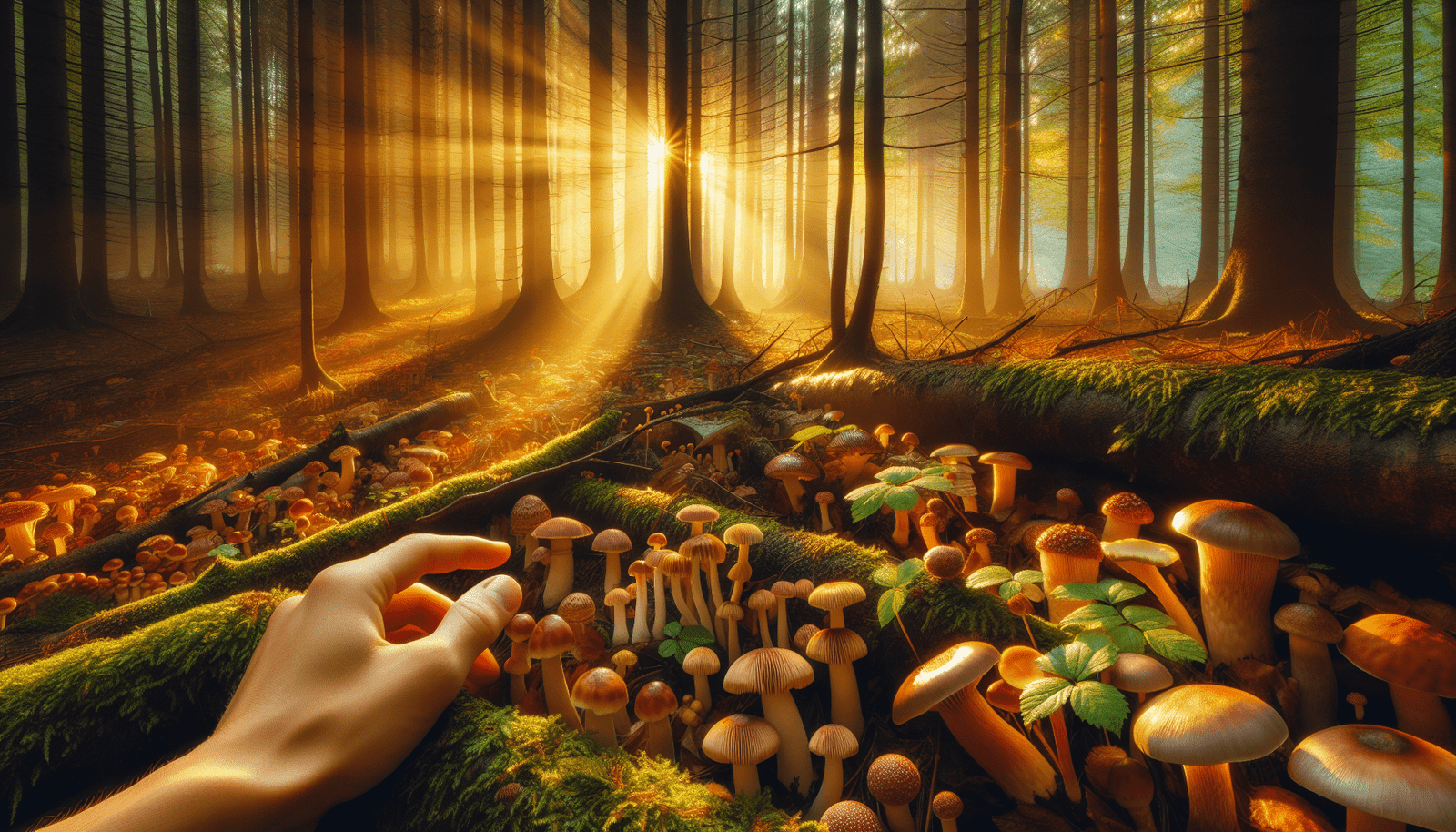
Cultural Significance
Historical Roots
Mushroom hunting has historical significance in many cultures. Foraging for wild mushrooms has been a practice dating back centuries, deeply embedded in culinary traditions, especially in regions like Eastern Europe and Asia.
Folk Medicine and Folklore
Mushrooms have also been a part of folk medicine and traditional rituals. Various cultures have used mushrooms in healing practices, and they feature prominently in folklore, symbolizing everything from good luck to spiritual enlightenment.
Getting Started with Mushroom Hunting
Basic Tools and Gear
To get started with mushroom hunting, you’ll need a few basic tools. Here’s a table to help you gather what you need:
| Item | Purpose |
|---|---|
| Field Guide or App | For identifying mushrooms |
| Mushroom Knife | For cutting mushrooms cleanly |
| Basket | For carrying your finds without damage |
| Gloves | Protects hands while picking |
| Notebook | Documenting your finds and locations |
| Waterproof Boots | Essential for forest terrain |
Identifying Safe Species
If you’re new to mushroom hunting, it’s best to start by learning to identify a few common and easily recognizable edible species. Some of these include:
| Mushroom | Description |
|---|---|
| Morel | Honeycomb-like appearance |
| Chanterelle | Yellow to orange, funnel-shaped |
| Oyster Mushroom | Oyster-like shape, usually grows on trees |
| Hen of the Woods | Multiple layers and fronds, like a hen |
Joining a Community
Engaging with a community can enhance your learning and enjoyment of mushroom hunting. Consider joining local mycological societies, attending foraging workshops, and participating in online forums. Sharing knowledge and experiences with others can make the learning curve less steep and the hunting more rewarding.
Best Practices for Responsible Mushroom Hunting
Respect the Land
Always respect the land you forage on. Stick to marked trails when possible, avoid private lands unless you have permission, and adhere to local regulations regarding foraging.
Sustainable Harvesting
Ensure that you practice sustainable harvesting. Only take what you need, leave behind some mushrooms to spore, and avoid disturbing the habitat. These practices help maintain the ecological balance and ensure that mushrooms will continue to grow year after year.
Educate Others
If you become an experienced mushroom hunter, consider educating others. Share your knowledge about safe foraging practices, sustainable harvesting, and the importance of preserving natural habitats. By doing so, you contribute to a culture of responsible mushroom hunting that benefits everyone.
Seasonal Considerations
Optimal Hunting Times
Mushroom hunting is highly dependent on the season. Different mushrooms thrive at different times of the year, influenced by factors such as temperature and rainfall. Here’s a brief guide:
| Season | Ideal Mushrooms |
|---|---|
| Spring | Morels, Oyster Mushrooms |
| Summer | Chanterelles, Boletes |
| Fall | Porcini, Hen of the Woods, Maitake |
| Winter | Wood Ear, Velvet Foot |
Weather Conditions
Weather conditions also play a significant role in mushroom growth. Ideally, a period of rain followed by mild, sunny days creates the perfect conditions for mushrooms to flourish. Being aware of weather patterns can increase your success rate in finding mushrooms.
Conclusion
Mushroom hunting offers a myriad of benefits, from connecting with nature and experiencing the thrill of the hunt to enjoying fresh, nutritious food and engaging in lifelong learning. The activity provides both physical and mental health benefits and fosters a deep understanding and appreciation of the natural world. Whether you’re drawn to the culinary delights, the educational aspects, or the cultural significance of mushrooms, there’s no denying the universal appeal of this fascinating and rewarding pastime. By practicing responsible and sustainable foraging, you ensure that both you and future generations can continue to enjoy the wonders of mushroom hunting.
